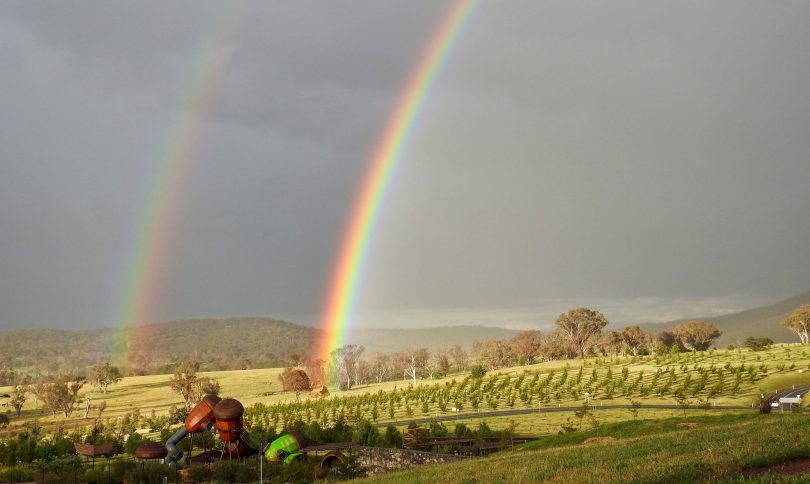
Stay positive and colourful during difficult times. Image courtesy Cazz via Flickr.
With almost three weeks still to go before the final deadline for returning Australian Marriage Law Survey forms in the post, more than 67.5% of forms have already been returned. The Essential poll on those who had not yet voted in the survey, dated 4 October, shows that only 14% of voters didn’t know if they would vote “yes” or “no”.
This means all the campaigning and public debate we’re seeing about marriage equality is actually aimed at only 4.55% of the total number of people on the Australian electoral roll – around 728,000 people. That’s a number that may be far lower than the number of people finding that the public commentary or abuse they’re seeing is leaving them feeling hurt or angry, given the number of people in Australia who are part of the LGBTIQ community.
ACON, an organisation working for the health of LGBTIQ people in New South Wales for over 30 years, has produced a resource to help people stay strong and resilient. Their advice includes:
Acknowledge your feelings
Acknowledging what it is that you’re feeling angry or distressed about, and talking about it with someone you trust, is more helpful than just acting out your anger and frustration.
Log off social media
If it’s all getting too much for you online, it’s OK to curate your social media feed or block offensive users. You might want to take a break from social media altogether and have a detox.
Look out for each other
Communities look out for each other. Ask your friends, family, or work colleagues if they’re OK. Be a good listener if they want to talk about how they’re feeling. This is important for non-LGBTIQ people who have friends or family in the LGBTIQ community – check-in.
Stay social
LGBTIQ people often have a “family of choice” made up of people who may have similar life experiences to their own. Reach out to your support network and stay connected.
Clear your thinking
When you feel upset or angry, your thoughts and feelings can become exaggerated. Try to replace these thoughts with more useful, constructive ones, and your feelings may change too.
Say it to yourself
Make a list of things you can say to yourself during or immediately after a situation that makes you feel hurt or angry. Choose things that focus on how you are managing the situation rather than focusing on what other people should or should not be doing.
Take care of you
Self-care is important to keep yourself going when negative feelings are draining your energy. Make sure you’re getting enough sleep, eating healthy, staying hydrated, and getting fresh air.
Get busy
Channel those feelings into positive, constructive activity. Getting involved in an issue you’re passionate about can be an opportunity to be surrounded by other people who share your commitment and passion for the cause, and it feels good to take action.
Be creative
Distracting your conscious mind from negative feelings through creative expression can be helpful. Writing, drawing, painting, meditating, singing, or other creative ways of expressing your feelings can be a cathartic experience and provide an outlet for your energies.
Take Time Out
Take a break from it all. It could be as simple as a walk in a national park, going for a swim, or seeing a movie. Or you may want to get away for the weekend. Whatever you choose, make it something soothing for the body and soul.

If you feel like it’s all too much, take some time out for yourself and enjoy the view. Image courtesy Cazz via Flickr.
There are organisations in Canberra that provide support to LGBTIQ people. If you or someone you know needs support, here are some places you can find help:
AIDS Action Council – provides counselling services and workshops for LGBTIQ people.
A Gender Agenda – facilitates peer support groups for people who are intersex, trans, or gender diverse and their families.
QLife – is a national online and phone counselling service for people who are lesbian, gay, bisexual, trans and/or intersex.
Lifeline – provides telephone crisis counselling 24 hours a day, 7 days a week on 13 11 14.
Headspace Canberra – provides counselling services to young people aged 12 to 25 years.
Beyond Blue – provides telephone support 24 hours a day, 7 days a week on 1300 22 4636, as well as online support.
Relationships Australia – provides counselling services and have offices in Canberra.
You can also talk to your GP about mental health.
Thank you to the CBR LGBTIQ Community Consortium for making this information available.
How has your experience been during this time? Do you know any other organisations that can help that we should know about? Let us know by commenting below.












